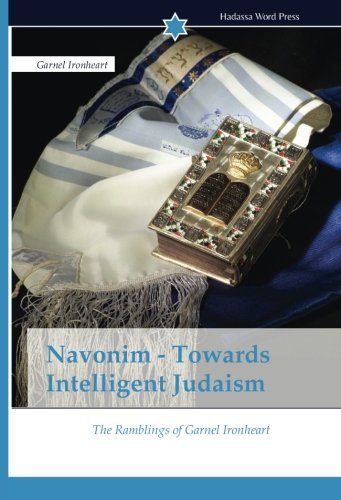What no one in the Chareidi community wants to ask is: what is the validity of this ruling in the first place?
Over at Cross Currents, Rav Yair Hoffman tries to take an apologetic approach and suggests some possibilities to make this harsh p'sak seem more understandable:
There are, of course, four possibilities as to what actually transpired here.
The well-meaning Rabbi who runs the organization got carried away and did not understand that Rav Chaim was merely giving him encouragement to continue his work but did not actually mean that the iPhone owners are genuinely pasul l’Eidus.Unfortunately there are holes in all those suggestions. To wit, we have no evidence that the Rav who released this statement is well-meaning. I mean, he's probably given the doubt by Rav Hoffman because he wears th right outfit and studies Torah with the right amount of swaying and Yiddish interjections which is all you need to be considered righteous by many in the Chareidi community but for the rest of us we have no idea if this Rav was genuinely concerned about the spiritual welfare of klal Yisrael or a manipulative power freak who is on a campaign to ban the iPhone no matter how much damage he causes people.
Rav Chaim himself allowed the quote to be made as a type of warning as to how serious we must view this new challenge to Judaism, but he did not actually rule that the iPhone owners are genuinely pasul l’Eidus.
The well-meaning Rabbi who runs the organization perhaps misrepresented to Rav Chaim what an iPhone device actually is and how the majority of people actually use it.
This author is incorrect and Rav Chaim actually ruled this way with all the associated repercussions and consequences and fully understood the nature and use of the iPhone.
It is unfortunate, but this author is aware of numerous instances where the first and third scenario has been replayed many times with Gedolim. Indeed, many Gedolim have issued the clarification that they only issue their rulings based upon the facts at hand that are presented to them
What's further, the idea that Rav Kaniesky, shlit"a, would issue such a definitive statement but expect people to understand he didn't really mean to rule that way but wanted to get across the strength of his concerns is also ludicruous. Such a rationalization could then be retroactiely attached to all his p'saks. Is Rav Hoffman suggesting this is a viable option?
Rav Hoffman leaves out three further options that need to be stated:
1) The Rav, fully intending to leave his meeting with Rav Kanievsky holding a ban against the iPhone, completely misled the Gaon, a man with unparalleled Torah knowledge but who has no clue what a real iPhone is. He told Rav Kanievsky exactly what he needed to so that the Gaon would give him the harsh ps'ak.
2) The Rav never even asked the question but simply held a conversation about the iPhone with Rav Kanievsky. The Gaon, during the conversation, may have mused about how terrible such a device is and its possible halachic ramifications on owners and the Rav left the meeting, wrote up the p'sak himself, certain that Rav Kanievsky would agree to it.
3) The discussion never took place. Instead the Rav invented the p'sak after a brief meeting with Rav Kanievsky that had nothing to do with the iPhone issue, confident that Rav Kanievsky would support such a position and then put the Gaon's name on it.
The bigger problem with this story is the implication for the Chareidi leadership. The fundamental basis for the authority of Chareidi leaders to issue decrees without having to even explain their thinking is the concept of "Daas Torah". Tuned into God's radio frequence in a way we cannot understand they are able to deliver correct rulings for the masses. If this is true then how can they really be manipulated? How can they reach improper decisions if they have ruach hakodesh to guide them to the emes?
This story potentially demonstrates once again that this is not true. If Rav Kanievsky truly issued the p'sak he is being credited with then it turns out "Gedolim" aren't infallible omniscient leaders but very learned men with no knowledge of the world they are paskening for, men who can be manipulated by base individuals into saying whatever those individuals want them to say.
If you don't believe me, ask Lipa Schmeltzer.
Rav Eliashiv, z"l, is quoted as saying "If you didn't hear it directly from me don't believe I said it." How can a system which has no reliability on reported statements of its leaders properly function? How can I believe that a teshuvah was copied and pritned correctly instead of being adjusted to fit a prevailing ideology? Short of walking in and asking the "Gadol" the question myself how can I rely on any answer they give?
